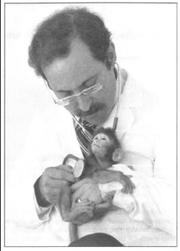SELENIUM
Selenium (Se) is one of the trace minerals essential for human health. It serves many functions in human physiology, including the synthesis of antioxidants (natural substances that neutralize free radical damage) and thyroid, and function of the immune system. It cannot be made by the human body but instead must be obtained through the diet in the form of nuts, cereals, meat, mushrooms, fish, eggs and dietary supplements.

DEPLETED SOIL THE PROBLEM Thousands of years ago melting icecaps washed away most of the selenium from British soils and as a result UK levels are low. It is estimated that the body needs in the region of 60 to 70 micrograms of selenium a day, but the British diet is said to contain only about half this amount due to the poor selenium content of our fruits and vegetables, including organic produce. Research findings at the University of Surrey indicate that adding very small amounts of selenium to the soil (around 20 g per ha) would increase levels in the population to those recommended. Just three of four slices of bread made from wheat enriched by selenium-fortified fertilizer would be enough. Professor Steve McGrath of Rothamsted Research states “This is a really easy and cheap solution to a public health problem. The government should be pushing the industry to fortify fertilizers in this way.” This has already been done successfully in Finland for some years. The addition of selenium to agricultural fertilizers in the UK should be mandatory. Selenium levels in the soil are lowest in the East of England, parts of the South of England, Wales, North East Scotland and N. Ireland. DRAMATIC DROP IN DEATHS FROM CANCER Micronutrients such as selenium may only needed in trace amounts but as Professor Margaret Rayman explains, “Low Se levels in the diet have been linked to increased risk of death, poor immune function, male infertility, female reproductive problems and decreased brain function in the elderly. It has also been suggested that low Se increases the risk of cancer. Part of the problem is the low level of Se in UK wheat (around 20 times less than those in US wheat). Consequently we are getting less Se than we should when eating bread, cakes and biscuits baked with British flour". A study in the US has shown that taking a daily selenium supplement of 200 micrograms is associated with a 50 per cent drop in deaths from cancer of the colon, prostate and lung. Scientists also agree that optimizing selenium intake “not only aids preservation of general health but also contributes substantially to the prevention of thyroid disease.” CANCER LINK TO COOKING OILS In the 1950s, when Britain imported North American wheat flour with its higher levels of Se, the UK had a lower incidence of cancer than today. By 1995, these wheat imports had fallen by 80% and the daily dietary intake of selenium had dropped from 60 µg to 34 µg, well below the Recommended Nutrient Intake. About the same time, American Dr. Joel Wallach in his book ‘Rare Earths and Forbidden Cures’, warned that ‘high intakes of vegetable oils including salad dressing, margarine and cooking oils concurrent with a selenium deficiency is the quickest route to a heart attack and cancer.’ He added that adequate selenium is proven to reduce your cancer risk from between 60-80%. * * * * * * * * SELENIUM AND CYSTIC FIBROSIS Wallach trained as a veterinarian and in 1978, as a researcher at the Emory University Yerkes National Primate Centre in Atlanta, Georgia, he observed that when female rhesus monkeys in the laboratory were deprived of selenium in their diet, their offspring developed symptoms similar to cystic fibrosis in humans. After further meticulous tests, Wallach was able to prove not only that the disease was caused by a selenium deficiency in the mother and was not a genetic disease, as was previously believed, but that ‘congenital and neonatal selenium deficiency in animals equalled cystic fibrosis in humans.’ (‘Congenital’ meaning a condition present at birth). BATTLE AGAINST ESTABLISHED DOGMA Wallach was hailed as a hero and invited to lecture in 20 different States in America and in several European countries. The diagnosis was based on characteristic cystic fibrosis changes in the pancreas and liver in baby monkeys and these were confirmed by cystic fibrosis experts from Johns Hopkins School of Medicine, Emory University and the University of Chicago. Experts from the National Institutes of Health and the Cystic Fibrosis Foundation were overjoyed. However, the facility for which Wallach was working at the time was trying to get a multi-million dollar grant to study genetics. He explained ‘They were afraid that if I showed cystic fibrosis was not genetic they wouldn’t get the grant. So they pulled the plug’. Within a few months the scientific community, still clinging to the established dogma that cystic fibrosis was a genetic disease and not a congenital one, finally won the day; the scientists closed ranks and Wallach’s discovery was discredited and ignored. References:
https://www.youtube.com/watch?v=cAOnx97T0WA Interview with Dr.Joel Wallach. http://www.dailymail.co.uk/health/article-150717/Why-selenium-vital-all.html#ixzz3tvdV6fq8 |
THE “CRIME” OF THE CENTURY
The fact that grants and other funding for research into the disease would end and many scientists would lose their jobs as a result, was more important to the scientific community than the ground breaking revelation that showed the way to eliminate a severe, distressing disease thought to be incurable. Cystic fibrosis which Wallach says is 100% preventable, is still affecting thousands of children every year. He calls it the ‘crime’ of the century. Not only is cystic fibrosis preventable but he claims it is 100% curable in the early stages in laboratory animals. ‘The prevention of cystic fibrosis has been accomplished in pet, farm and laboratory animals by the veterinary profession by assuring adequate levels of selenium and essential fatty acid nutriture (sic) to the preconception, pregnant and nursing mother.’ After 30 years as a veterinarian, Wallach decided to train as a doctor in order to help those affected by the disease. He was able to treat more than 450 cystic fibrosis patients with excellent results using selenium. Infants with cystic fibrosis that were started on a selenium therapy at 3 months were still cured at age 12. Mothers who had had cystic fibrosis children were able to have normal children after their selenium deficiency was corrected. OLD DOGMA STILL PERSISTS Despite this discovery the Cystic Fibrosis Trust still clings to the belief that ‘cystic fibrosis is an inherited disease caused by a faulty gene’. The Trust states ‘currently there is no cure for cystic fibrosis. We support research into effective treatment for cystic fibrosis and invest in projects aimed at targeting the root cause’. ‘We funded the UK CF Gene Therapy Consortium (GTC) to develop a gene therapy product with the potential to 'correct' the faulty cystic fibrosis gene in the lungs. The Cystic Fibrosis Trust has invested £30 million in gene therapy to date.’ ROBBED OF A NORMAL LIFE Money continues to be poured into new projects such as gene therapy, leading scientists down ever narrowing corridors and yet the Medical Research Council actually withdrew funding for Professor Margaret Rayman's research into the link between selenium deficiency and disease. Researchers choose to ignore less profitable solutions such as mineral deficiencies despite being already proven in animal experiments. Why else did Wallach have to wait more than 30 years for his groundbreaking discovery to be acclaimed? During those 30 years many thousands of babies have been born with cystic fibrosis and made to suffer the horrible consequences of this disease thereby robbing them of the chance to lead a normal life. How many more decades will have to pass before this simple solution of adding selenium to the diet of pregnant women is put into practice? * * * * * * * *
Pioneering Biochemical Researcher, Joel D. Wallach, BS, DVM, ND Awarded the 2011 Klaus Schwarz Commemorative Medal in Atlanta, January 5, 2012.
Scientific award recognizes discovery of Selenium-Cystic Fibrosis link. This prestigious award, sponsored by the International Association of Bioinorganic Scientists, Inc. (IABS), recognizes the work of pioneers in the field of trace element research and is named after Klaus Schwarz (1914-1978), a leading trace element researcher best known for his discovery of the essentiality of selenium. The IABS cited Wallach's groundbreaking discovery of an animal model of cystic fibrosis, a disease that affects 70,000 people worldwide. In 1978, as a researcher at the Emory University Yerkes National Primate Center in Atlanta, Georgia, Wallach observed pancreatic lesions that were identical to those observed in human patients in the offspring of inadequately-fed rhesus monkeys. This suggested that cystic fibrosis—at the time believed to be a genetic disorder of humans only—could also be the result of selenium deficiency and that some forms of cystic fibrosis are, in principal, nutritionally preventable. "Dr. Wallach is honored for a discovery that is already benefiting many," said Dr. Gerhard N. Schrauzer, PhD, MS, FACN, CNS, and IABS Founder and President. "The broader significance of his discovery three decades ago is only now beginning to be recognized”. Wallach was also the recipient of the 1988 Wooster Beach Gold Medal award for breakthroughs in understanding the cause of Cystic Fibrosis and was the 1991 Nobel Prize Nominee in Medicine. |

